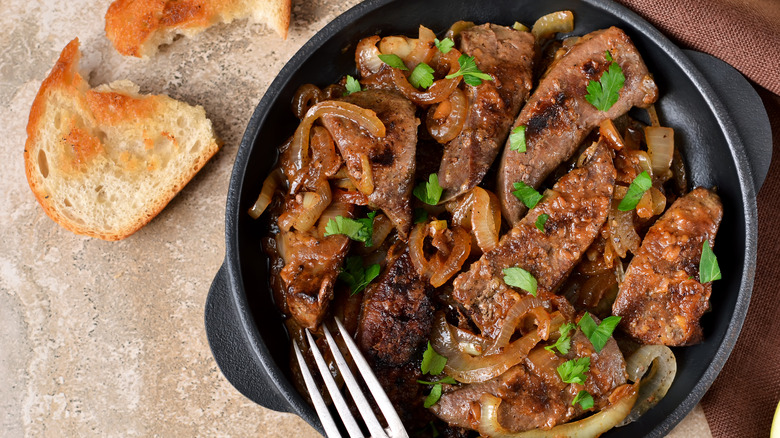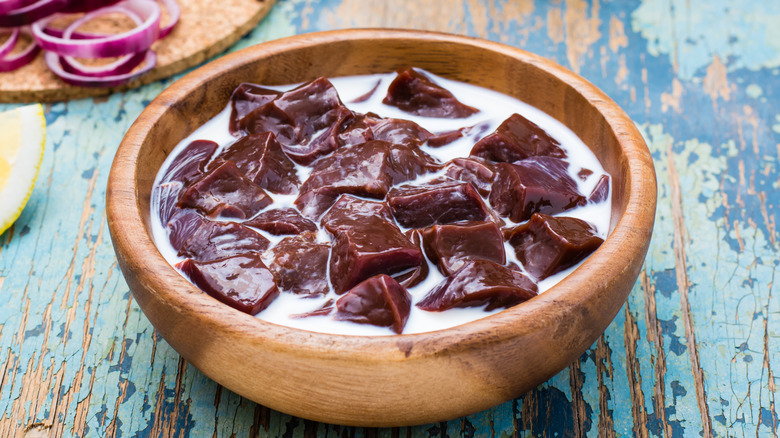For Extra Tender Liver, Make Sure You Incorporate Buttermilk
If you've never eaten liver before, it's not your fault. It is decidedly out of fashion in American dining, which is really a shame. Not only is liver flavorful, it is filled with essential vitamins and minerals, is low in fat, and high in protein. And despite fading into practical obscurity, it is worth it for you to go out and try some. Just remember to incorporate some buttermilk for added tenderness and balanced flavors.
Though liver is almost impossible to find outside of a butcher shop, nearly all grocery stores will stock buttermilk in the dairy section. The stuff on the shelves is what's known as cultured buttermilk. This is created by adding active cultures to whole or low-fat milk and allowing it to ferment for several hours. The cultures transform the milk into a tangy, almost buttery liquid that is high in lactic acids. This is what makes buttermilk an excellent addition to baked goods and as a marinade for meats, including liver.
To achieve optimal tenderness with liver, you'll need to cover it with buttermilk and allow it to soak for as little as 30 minutes or up to three hours. This window provides a decent time for the buttermilk to work on the liver. What you should end up with is a tenderized liver with a more mellow, balanced flavor. But how exactly does this work?
How buttermilk tenderizes liver
Think of the buttermilk in this situation the same way you would a marinade with any other piece of meat. Liver may be an organ meat, but that does not mean that it won't act similarly when drenched in marinade. The lactic acids in the buttermilk work to break down tissue and inject moisture into the meat. Liver has the potential to cook up tough. By soaking it in buttermilk, you are almost guaranteed a more tender and juicy meal.
The other thing buttermilk will do to liver is that it helps tone down and balance out the flavors. Organ meat, like game meat, can have very strong flavors that may strike some eaters as overpowering. So, as the liver sits in the buttermilk, the dairy proteins penetrate and mildly bind the meat, which results in a more subdued flavor. This balance is especially helpful if you're making liver and onions, where one flavor should not overpower the other but instead exist in harmony.
Though you can find buttermilk in virtually every supermarket, you can substitute it for standard whole milk or even cream if you prefer. However, if you want to really maximize tenderness and balancing of flavors, buttermilk is the way to go.

